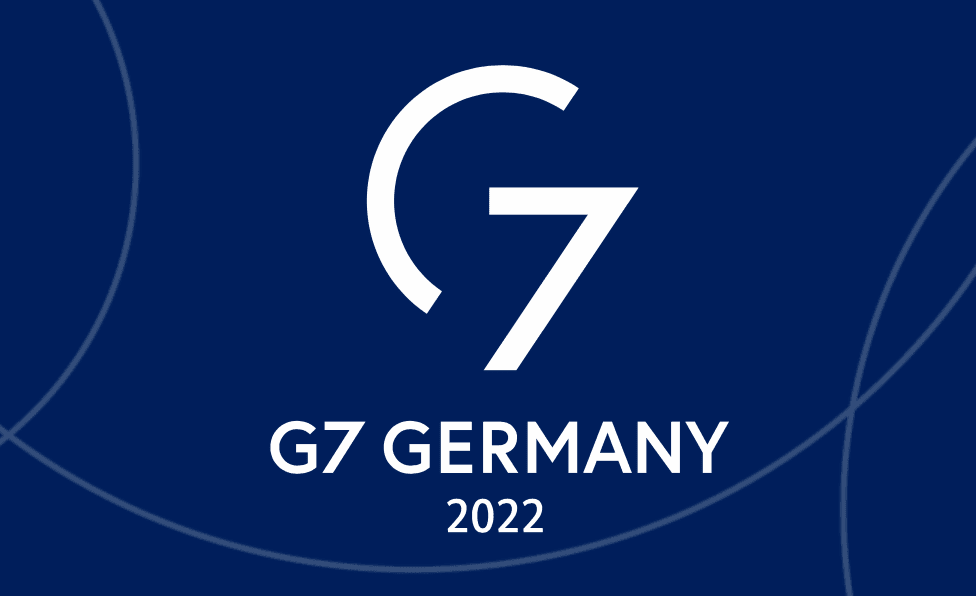G7 commits to scale up climate and disaster risk finance and insurance

After meeting in Germany this week, the leaders of the Group of Seven (G7) countries have committed to scaling up climate and disaster risk financing and insurance efforts.
The leaders of the G7 noted that their meeting in Elmau, Germany came at a time that represents a “critical juncture for the global community, to make progress towards an equitable world.”
While Ukraine and Russia’s invasion of it was clearly the main focus of discussions at the G7 meetings this week, climate risk and climate financing received significant attention and the leaders of the G7 countries clearly wanted to make a statement and so their communique is peppered with references to making progress on climate change response, adaptation and climate risk.
“At a time when the world is threatened by division, we will jointly assume our responsibility and work with partners around the world to find solutions to pressing global challenges such as tackling climate change, and securing a just transition as well as addressing the current and future pandemics and achieving gender equality,” the G7 leaders communique explained.
The leaders reaffirmed their commitments to climate targets and recognised the effects climate change has on global peace, prosperity and security, as well as the need for climate financing to fund the response and adaptation to it.
“We recognise that combating climate change, biodiversity loss, and pollution requires mobilising private and public, domestic, and international financial resources. To this end, we commit to implementing with others clear policies and strategies to align financial flows with our climate and biodiversity objectives and are committed to mobilising resources from all sources,” the G7 leaders wrote.
They renewed their commitment to quickly mobilising the USD 100 billion of collective climate finance through to 2025 and to at least double the provision of climate finance for adaptation to developing countries.
The most vulnerable countries are a clear focus and loss and damage received a mention again, despite the lack of a meaningful loss and damage financing facility having been created by now.
But they said that, “We recognise the urgent need for scaling-up action and support to avert, minimise, and address loss and damage particularly in vulnerable developing countries.”
Climate risk insurance and reinsurance has a significant roll to play in loss and damage financing solutions and the G7 leaders committed to scaling up efforts in this area as well.
“We commit to scale up climate and disaster risk finance and insurance (CDRFI) and will work towards a Global Shield against Climate Risks, building on the InsuResilience Global Partnership and other initiatives,” the G7 leaders communique stated.
Adding, “We ask our Development Ministers to make progress on the Global Shield by COP 27.”
Through the Global Shield, it is hoped that the fragmented approaches to disaster risk finance and climate insurance can be brought together to provide greater benefits to countries most in-need and most at-risk.
In time, the Global Shield initiative is expected to include loss and damage, as well as longer-term climate resilience efforts as well.
It will have an insurance as well as broader financing focus, meaning there will be a clear roll for the insurance and reinsurance industry, but perhaps also for capital markets, when it comes to the development of an effective loss and damage financing facility and the necessary financial infrastructure, as well as private capital participation, to support it.
What those pushing forward the development of disaster risk financing and climate insurance solutions need to avoid, is a repeat of recent history where many existing and disparate disaster risk insurance initiatives have been brought under one umbrella for entirely the wrong reasons, of being able to report higher numbers of lives covered.
That has resulted in a lack of coherence in individual efforts to expand insurance to the poorest and most vulnerable, while any economies and efficiencies of scale have seemingly been lost in the process.
For that reason, it does seem putting some sharp minds in the development space, together with insurance, reinsurance, insurance-linked securities (ILS) and financing experts together, to develop disaster risk finance and climate insurance tools that really achieve the goal of providing financing for loss and damage, alongside the broader L&D funding efforts, may deliver better results, by leveraging best practice and innovation to build a facility that can meet global needs from scratch.
The Global Shield initiative is an opportunity to think bigger and start from a clean-slate, taking best practice in how to deploy capital to those affected by climate disasters, alongside the need to fund adaptation, resilience, response and recovery.
The G7 leaders also cite a desire to increase funding for Nature-based Solutions, which is another area that learnings could be taken from the projects that have integrated parametric risk transfer, with insurance or capital markets funding, to provide disaster risk finance and an efficient capital solution to support communities that rely on natural resources and infrastructure.
There is a lot of innovation in this area in the insurance, reinsurance and ILS market, which could be taken as a base from which to develop loss and damage risk financing solutions that may have much greater effect for those in need.
So it’s encouraging to see the G7 commit on scaling up efforts in climate disaster risk finance and insurance, but also very important industry plays a key roll with development organisations to build a scalable solution to delivering capital that has the ability to absorb and transfer risk.
Of course, we’ve heard these commitments before, most recently at the G7 meetings last summer, since when little progress has really been made on loss and damage financing, as well as the infrastructure for a facility that will be required.
But it’s important to see the topic remains high on the agenda, even when such world changing events, like those in Ukraine, are often taking up leaders time and attention.






